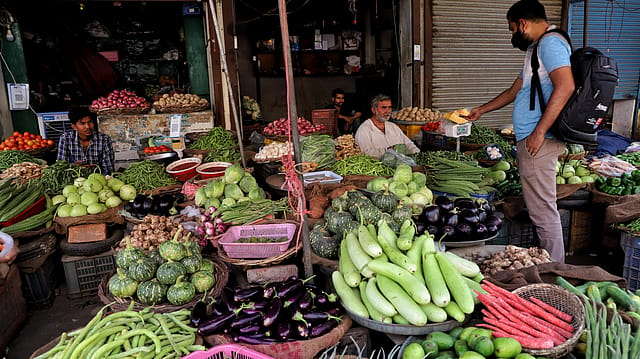Easing commodity prices to dampen inflationary pressures: FinMin
ADVERTISEMENT

The falling international commodity prices and the arrival of new Kharif crops are set to dampen inflationary pressures in the coming months, the finance ministry said in its monthly economic review report on Thursday. The development comes at a time when the consumer price index (CPI)-based retail inflation fell to a three-month low of 6.77% in October, down from 7.41% in September and the inflation based on wholesale price-based index eased to 8.39% in October from 10.7% in September.
The finance ministry has cited the rising fuel prices as a major contributor to the gap between CPI and WPI inflation in the past few months. However, it said the difference has been closing due to a moderation of international commodity prices, which has eased wholesale inflation and the pass-through of input prices by producers to consumers amid robust demand has led to an increase in retail inflation.
“Looking ahead, the decreasing trend in future prices of international commodities for upcoming months under energy, base metals (barring aluminium), fertilisers and agriculture products also suggest that broadly input cost pressures are likely to continue easing under the assumption of a stable global scenario. RBI’s enterprise surveys also indicate that the input price pressure is expected to reduce in the second half of the current financial year,” the report said.
“Going forward, the current retail inflationary pressures are expected to ease aided by Kharif arrivals and pass-through of lower global commodity prices, also affirmed by RBI’s inflation projections for Q3 at 6.5 per cent and Q4 at 5.8 per cent, with risks evenly balanced and 5.0% for Q1:2023-24,” it added.
Moreover, the household inflation expectations for September this year have surged to 10.8% for three months and 11% for one year. The report said that the higher inflation expectations have been influenced more by existing inflationary conditions than the decline in international commodity prices. The report said that the declining trend in future prices of international commodities suggests subsiding input cost pressures in the coming months. In order to curtail inflation, the Reserve Bank of India has also hiked the key repo rate by 190 basis points at 5.90% since May.
Meanwhile, the domestic prices of edible oils such as sunflower, palm oil and soybean witnessed an uptick owing to an increase in global prices and supply chain constraints amidst the Russia-Ukraine crisis, thus potentially threatening the affordability of food supplies. Food security in India has also been likely under threat in the past few months. The ministry, however, said that through proactive and pre-emptive government interventions the situation is stabilized in India. Moreover, an increase in exports of crops has also ensured availability and domestic price stability.
“India’s food security is stable with food security programs well provided for to meet the needs of the poor, supplemented by export restrictions. Affordability in the free market has also been increasing with prices of various items like edible oils, and egg in the CPI food basket declining. Increase in tractor sales in September and October also point towards improved sentiments and an expected increase in crop area sown,” the ministry said in a statement.